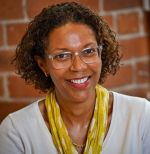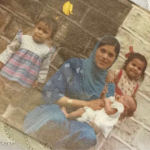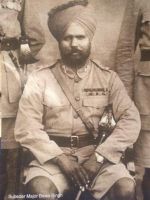 This page includes reflections and blogs written by people who have experienced racism, which highlight the issues they’ve faced and prompt individuals and organisations alike to take action.
This page includes reflections and blogs written by people who have experienced racism, which highlight the issues they’ve faced and prompt individuals and organisations alike to take action.
Make your pledge to Root Out Racism
Over five months ago we set out to create an anti-racism movement.
Root Out Racism is a movement co-created by over 100 West Yorkshire and Harrogate Health and Care Partnership ethnic minority colleagues. It aims to proactively challenge racism across all aspects of society, to improve health inequalities, and to help individuals and organisations alike to become actively anti-racist. Put simply, to prompt us to look at ourselves and to better inform ourselves on anti-racist behaviours, to stand up against racism, and to stand together. It is about representing yet another step toward meaningful and real change. It is about anti-racism.
We pledge to act and show there is no place for racism across our region.
We are proud to stand alongside our colleagues and root out racism. Join us. No barriers, no excuses and only one commitment. Whether it’s posting on social media, wearing a pin badge, or having the courage to speak up against racist behaviours, you are the movement. You can root out racism. To publish your pledge and to receive a free Root Out Racism pin badge to wear with pride, email: westyorkshire.
Blogs by colleagues across West Yorkshire and Harrogate
-
With 12 months distance back to the summer of 2020, as the Black Lives Matters movement and the murder of George Floyd reverberated around the world, it’s perhaps now possible to see those events from a more macro viewpoint, to see the chapter headings of the story as we moved from one stage to the next. Perhaps the most important chapters however are yet to be written if we are truly going to see real lasting change.
-

In our Trust we will firstly, treat everyone as a unique individual, valuing the difference they bring; secondly, ensure everyone has the skills, experience and knowledge to progress and match this with real opportunity; and finally, ensure that we measure our success, so we know we’re on track.
-

The first day of my second year placement in clinical psychology was eventful. I turned up excited about what lay ahead but anxious as I had never worked in this setting before. I had met my placement supervisor, white and female, the week before and now I was due to meet her at a group home to attend a team meeting. I arrived at the home and was shown to the meeting room. My supervisor arrived a few minutes later and sat at the other end of the room as it was a little busy and cramped. As the chair of the meeting, she said hello to everyone and then turned to me and asked, ‘Are you the new health care assistant’?
-

I suppose that as I was growing up, I looked like any other Pakistani youth – fairly ordinary and ‘unremarkable’. I had a ‘light’ moustache throughout my student years and then, as I moved into establishing the early years of my career, a ‘fashionable’ stubble. I got married and eventually we were expecting our first child. That was a very significant moment in my life – I was going to become a father, we were going to be a family. I pictured that in my mind and came to a realisation… I had to be a good role model for my child. As I’m a Muslim, I decided that one of the ways of doing that would be to grow my beard – so that my child could see me as a good Muslim.
-

Aslam-u-Alaikum my name is Shakeel (many of you will know me as Shak) and I would normally start any such piece with ‘hello my name is…’. Hello my name is a seen as a global movement that espouses compassion. However for over 1400 years Muslims have used the greeting I opened this piece with to say ‘peace be upon you’. The very core of our religion is about being the best human possible and purity is half of our faith. In these times of frequent hand washing, I hear some Muslims joke about how often they have to wash their hands anyway for religious purposes. But that purity isn’t just about keeping yourself clean from a hygienic perspective, but also purity of thoughts and purity in how you deal with others.
-

“Asian men beat up their wives and force them to cover up. Mummy says Asians are bad people.” “Really?! Thank God I am not an Asian”. This is a conversation between two five year olds where the first child spreads word about dangerous Asian Muslims for the safety of the other child, who is incidentally her friend. The second child is horrified that such atrocities are taking place and feels a sudden surge of anger towards Asians for their callousness. I was the second child.
-

The word ‘absurd’ would be a bit harsh here but that is how I feel when someone assumes that I belong to a certain faith based on their own imagination. I have been greeted on Eid day at my workplace by my colleagues; I have been asked ‘not even water?’ during the Muslim fasting month, most of them not being aware that I would be taking a lunch break with them few hours later. I have also been questioned about my religion by patients who would ask and answer the question at the same time – cataloging me as a Muslim. I don’t carry traditional attire and my beard style exemplifies nothing but just the trend out there... but then again, a beard is not specified to Muslims alone. Then what makes me get the tag of nothing else but a Muslim?
-

There is a notion in Islam which states that actions are based on your intentions and rewarded as such. As the Prophet Muhammed (peace be upon him) stated:“the reward of deeds depends on his intentions, and a person will get the reward according to his intention” (Umar bin Al-Katthab). This has an influence on how I work, as not only do I help those I work with to the best of my ability, but I do so knowing that I am strengthening my faith.
-

The first Black History Month took place at Kent State University, from 2nd January 1970 to 28th February 1970 (coinciding incidentally with when I was born!). The original aspiration for Black History Month was to remember important people and events in the history of African people; something that was all too often neglected by the wider community, and not taught in schools. Over the years, the month has expanded to include all Black people.
-

Mainstream history is often not comprehensive and that is why initiatives such as Black History Month are vital. It illuminates forgotten heroes or “whitewashed” events of our shared past. Raising awareness of these rich stories plants healthy seeds which can have a lasting impact both inside and outside of Black Culture. Black history is abundant and relevant all year!
-

In deciding about how I might write this blog, I thought about how I would approach the subject of allyship. A quick google search will provide you with a wealth of information about how to be an ally to Black, Asian and minority ethnic communities but I thought I would share with you my own personal views. Indeed, local examples here in Leeds highlight the strong focus on this key subject with Leeds Teaching Hospital recently sharing their powerful BME Allyship model (IAPPLAUD) which seeks to serve a crucial role in driving racial equality in the organisation
-

We are sharing our stories in the hope they will increase understanding, promote diversity and inspire others to create a sense of belonging so that we can all bring our true self to work because it is only then that the magic happens. As a daughter of first generation Pakistani immigrants that grew up in Pendle, Lancashire which is an area that was, and still is predominately populated with families of South Asian heritage, I grew up listening to stories of overt racial discrimination that my parents and many others like them experienced on a daily basis.
-

What do you see when you look at me? A hairdresser, a beauty therapist? Things I have heard many times. Or do you see a mother, a wife, someone that loves reading, music and art? Do you see an ‘A star student’, someone that always works hard and fights for what they believe in?
-

It is the stories that we don’t always hear or learn about that remind us that many of us have family members and ancestors who have shaped our collective history. I’m Pam Bhupal, born and bred in Leeds and a proud Yorkshire lass. I started working for Calderdale Council in May 2018, working in the Chief Executive’s office. I want to share how I used my heritage and experiences to help set up the Calderdale BAME Network and how this also contributed to the work I do across Calderdale health and care system and West Yorkshire and Harrogate Health and Care Partnership.








